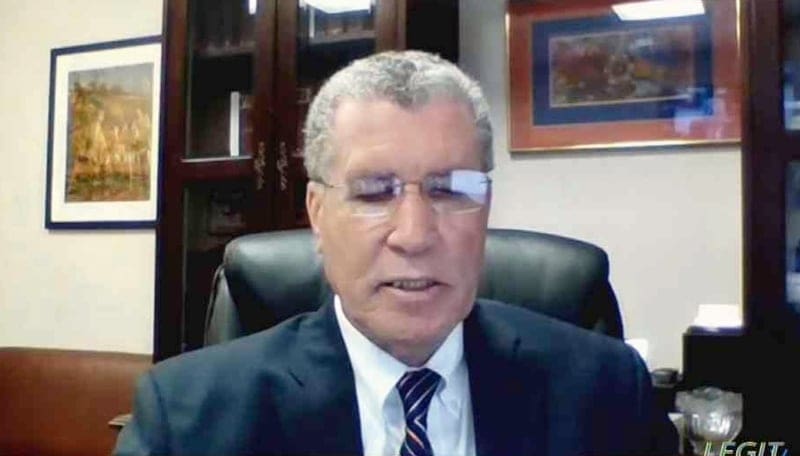
Amid a myriad of pandemic-related challenges, Chief Justice Rhys Hodge announced at Wednesday’s Senate Finance Committee hearing that, on Aug. 31, the V.I. judicial branch launched a long-awaited electronic filing system for the Superior Court and Supreme Court.
The filing system is a result of two years of effort in which the judicial branch modernized the entirety of its online operations, including a new website, the capability of online payment for traffic citations, the ability for cases to be created and maintained electronically and for new filings to be automatically docketed and accessible to the public.
The official launch of the Superior Court Enterprise C-Track Case Management System, which took the place of the prior system called ENACT, was on Feb. 24, but Hodge said that marked only phase one of the judiciary’s efforts.
Phase two, which has just been completed, required the integration of hundreds of thousands of case documents and fees from the prior system, Hodge said. Now the public can access documents, and the software has the ability to process payments.
Additionally, Hodge said, all probation case data and fees were inputted into the new system to allow for “the complete supervision of probationers, communication and monitoring through email, voice or text messages and online check-in through personal facial recognition and other electronic means, which has greatly reduced the need for in-person visits to the probation offices during the pandemic.”
With the system now live and functional, Hodge said the website can serve Virgin Islanders as a “one-stop-shop” for all judicial branch services.
The new system is timely, as several other online adaptations have occurred at the judiciary branch due to the ongoing pandemic.
Since May, Hodge said, remote hearing protocols have been expanded and “more than 1,764 matters have been heard virtually via Zoom and WebEx platforms.” The virtual hearings have a growing range as far as what matters can be heard, such as change of plea hearings, sentencings, abuse and neglect cases, civil cases, probates and, Hodge said, eventually domestic violence cases.
Though cases continue to be processed, Hodge said a backlog of more than 160 cases remains.
Many of the mandates of the judicial branch have to be performed with a limited staff. Hodge said out of 428 positions at the branch, just 308 are filled.
Those staffing shortages, he said, have resulted from a series of employee separations due to the fact that, over the past five fiscal years, “the appropriations to the judiciary have not afforded the necessary flexibility to comprehensively address compensation for the branch.” In fiscal year 2020, Hodge said, the branch has already processed 36 separations.
Budget cuts have impacted the judicial branch and now stand to impact the Judicial Council, which consists of just two law librarians. Hodge said the governor’s proposal of a 10 percent reduction to the council, which already receives no additional funding for supplies or operations, “would result in an actual reduction in salary for these two employees.”
At the budget hearing, Hodge said the judicial branch has made “thoughtful and informed strides,” but he urged the Finance Committee to not only reject the 10 percent reduction to the Judicial Council but to reject the governor’s budget recommendation and instead appropriate a requested $39 million.
Sens. Kurt Vialet, Donna Frett-Gregory, Janelle Sarauw, Marvin Blyden, Oakland Benta, Allison DeGazon and Dwayne DeGraff were present at the Finance hearing.





